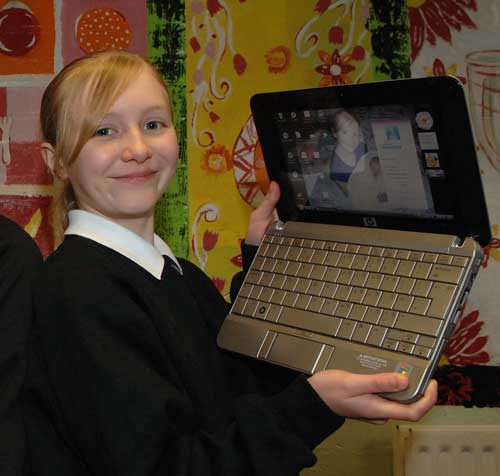
Whereas children in Birmingham enjoy excellent learning resources through technology in their schools, the reality is that many pupils do not have a computer at home. Learning therefore often stopped firmly at the school door, and pupils from disadvantaged backgrounds increasingly suffered from a ‘digital divide’. Here, Sue Hulme discusses an innovative partnership between Birmingham City Council, Birmingham e-Learning Foundation, the National e-Learning Foundation and education ICT suppliers to address the issue.
In 2007 Schools Minister, Jim Knight, created a government ‘home access’ taskforce aimed at tackling the emerging problem of the so-called ‘Digital Divide’ head-on, where many children and young people from lower income families across England lacked adequate access to computers and the internet outside of school. With the emergence of an increasingly competitive workplace, it’s widely acknowledged that those young learners benefiting from continual interaction with IT both at home and in school hold advantages over those without.
With online based learning becoming an intrinsic part of the curriculum, and schools increasingly making use of technologies such as virtual learning environments (VLE), it became crucial the government’s home access initiative set in place long term goals for providing universal internet access in the home to prevent learning and learning practices from stopping at the school gates.
Early Successes
So two years on, what impact has the government’s agenda had? One city doing particularly well and bearing the fruits of the scheme is Birmingham, via a local initiative know as Student Access at Home (SA@H) building on the Computers for Pupils (CFP) grant. This particular initiative, led locally, is the result of an innovative partnership between Birmingham City Council (BCC), Birmingham e-Learning Foundation (Be-LF), the National e-Learning Foundation (Ne-LF) and education ICT suppliers, including RM. Under the main remit of the government’s proposed universal home access proposal, the Digital Birmingham partnership aims for every learner across the city to have, as an entitlement, the opportunity to access a connected computer at home and reap the associated benefits.